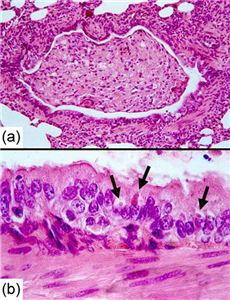Why Is It So Hard to Become Vegan?
- Eva Loftus

- Feb 17, 2021
- 3 min read

In 2018, the US slaughtered 9.6 billion land animals for food. Because meat is widely consumed and the meat industry is enormous, the first priority for factory farms is to kill as many animals as possible for the cheapest price. This means that the animals live in horrible conditions, in cramped cages with barely enough to eat. Following a vegan diet, which means cutting all animal products (meat, dairy, and eggs) from your diet will not only stop funding the meat slaughtering industry, but it also can lower an individual’s carbon footprint by 73%. Following a vegan diet has also been shown to lower cholesterol, blood pressure, and the risk of heart disease. Vegan diets generally contain more dietary fiber, fruits, and vegetables than the average meat diet. So, why are only 2% of the world’s population vegan? Why is it so hard to become vegan?
A common reason people can’t be vegan is because their culture or typical food made at home is meat-based. The vegan diet became increasingly mainstream in the 2010s, so many people’s parents and families have not become familiar with it. A lot of children and teenagers rely on their parent’s cooking, and food is often tied closely with one’s culture. This is a large factor in the inconvenience of being a vegan. In addition, just over 1,000 restaurants in Japan and 1,400 in the US offer exclusively vegan options, which makes finding good and convenient vegan options at conventional restaurants extremely difficult.
Convenience aside, there may be a scientific reason why so many people find it hard to stay vegan. Some people would claim humans today have a “meat addiction”. Some who have started vegetarian and vegan diets with plenty of calories and vegetables have still experienced “meat hunger”. This meat hunger, which is an extreme craving for meat, is likely derived from both the satisfying taste of salt and fat, but also because meat is a quick and popular source of protein. Anthropologist Marvin Harris theorizes that people living in an environment that doesn’t provide protein rich foods naturally feel as though meat is indispensable for a balanced diet.
Some scientists today believe that eating meat made us human. The current human brain is far larger than other primates, and it requires much more energy to sustain. Because meat is a calorie and protein dense food, it is commonly understood that meat consumption is what helped humans spend more energy on the brain and less on digestion, which made the brain explosively grow in size. Around 800,000 years ago, humans began cooking meat, which also decreased the amount of time spent eating and energy spent digesting, which helped save calories needed to grow their brains. Other historians and scientists also track our attachment to meat to our origins from the savannas, where we were wired to find calorie and protein-dense foods.
Our evolutionary history, meat hunger, and cultural foods are significant factors in our attachment to meat, and can speak to why we struggle to follow a vegetarian, much less a vegan, diet, despite their benefits.
Works Cited
Petter, Olivia. Going Vegan Is 'Single Biggest Way' to Reduce Our Impact, Study Finds. 24 Sept. 2020, www.independent.co.uk/life-style/health-and-families/veganism-environmental-impact-planet-reduced-plant-based-diet-humans-study-a8378631.html.
“2021 U.S. Animal Kill Clock.” Animal Clock, 2021, animalclock.org/#:~:text=How%20many%20animals%20are%20killed,Chickens%3A%209%2C160%2C910%2C000.
Williams, Sage. “Vegan Statistics – New Data Investigation For 2021.” Future Kind, 9 Apr. 2020, www.futurekind.com/blogs/vegan/vegan-statistics#:~:text=This%20survey%20was%20in%20fact,to%202%25%20of%20the%20population.
Barber, Nigel. “Do Humans Need Meat?” Psychology Today, Sussex Publishers, 12 Oct. 2016, www.psychologytoday.com/us/blog/the-human-beast/201610/do-humans-need-meat.
Roos, Dave. “The Juicy History of Humans Eating Meat.” History.com, A&E Television Networks, 8 May 2019, www.history.com/news/why-humans-eat-meat.
%20copy.png)



Comments